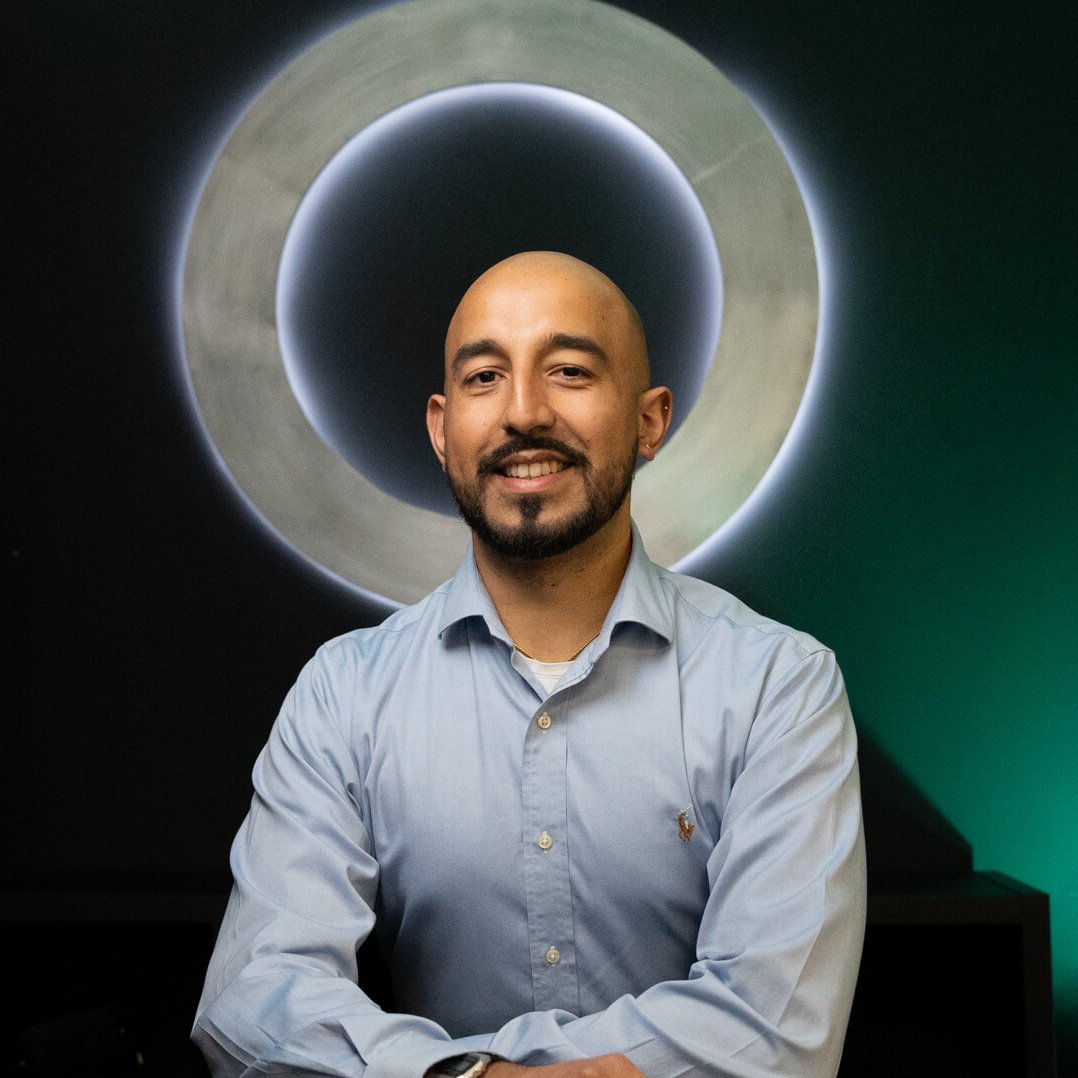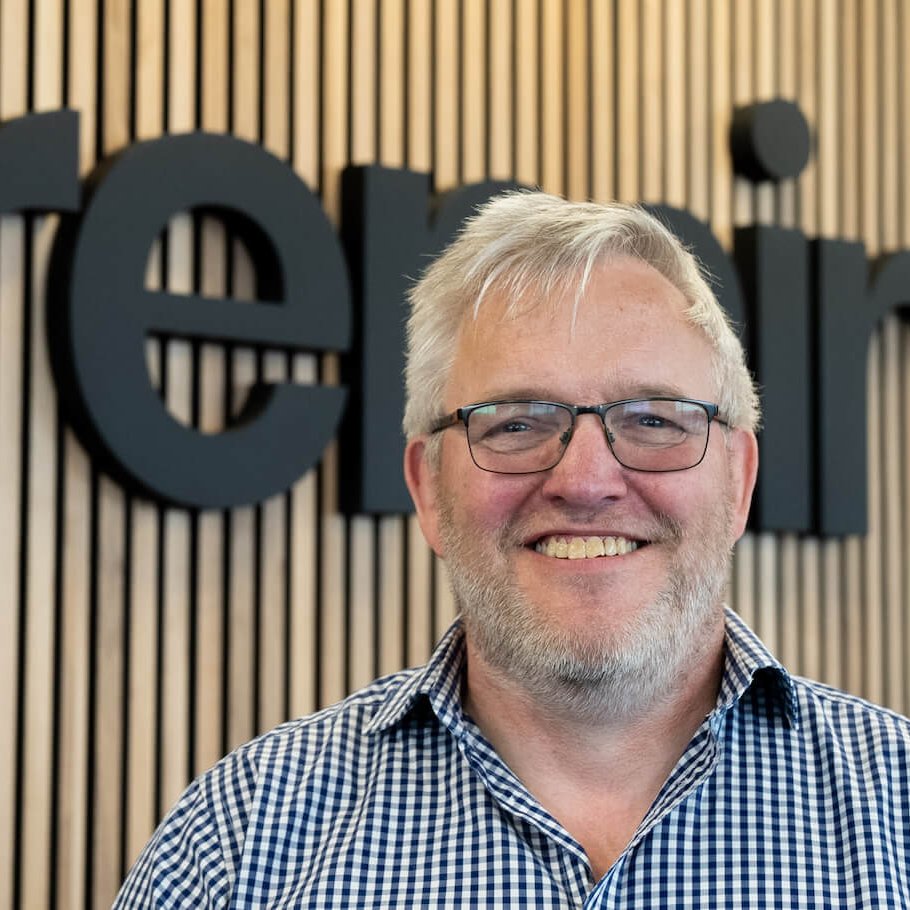Some believed it to be just a rumour. Others, a complete myth! But here at Firemind, we're very excited to celebrate in the fact that the Amazon Web Services (AWS) Certified golden jacket is indeed, very real! Firemind's Managed Services Lead, Ant Hayes, was recently awarded the jacket, and in this unique post, we'll be exploring the journey, hard work and complete commitment needed to receive it. As well as providing some of Ant's hints, tips and suggestions, for anyone on their own golden jacket journey.CategoriesTeam Updates, Achievements
Date Published
Ant Hayes Receives the AWS Certified Golden Jacket
What an achievement! 😎
We’ll kick things off by stating that earning the AWS Certified golden jacket is no easy task. The jacket itself started as more of a fun gag, being an item given to AWS staff who had completed all available certifications. From there, images of this golden apparel trickled onto the internet, and since then, it’s been an option for AWS partners to get their hands on, should a team member be in the rare position to have completed every certification released.
Ant Hayes is that rarity. We had the privilege to check in with Ant this week, to not only film a fun (and slightly cheesy) video with him in his new golden jacket, but also to understand the work and effort involved.
Q & A 💬
Were you aware of the Golden Jacket when you began your AWS certification journey?
No, not at all. I started working with AWS technologies back in 2015 and completed my first AWS certification in 2017. I don’t think the golden jacket even existed back then.
Why did you decide to pursue AWS certifications in the first place?
I’ve always liked to fully understand the technology that I’m working with, so I can advise customers properly and effectively. AWS certifications, or rather the training to prepare for them, are a time-efficient and structured method to get a good overview of the topics covered.
Which was the first AWS certification you obtained, and how did it impact your understanding of cloud services?
My first cloud exam was not even regarding the public cloud. I completed the “Monitoring and Operating a Private Cloud with System Center 2012”, back in 2013, and found the mix of virtualisation, self-service portals and automation fascinating, leading me to become a “Microsoft Certified Solutions Expert – Private Cloud”. The first AWS certification I obtained was the Solution Architect Associate, as the company I was working for at the time was building up its AWS capabilities. That certification covered, not only the possibilities around automation, but also around Infrastructure-as-code, which is immensely powerful and remains so today, especially when you have the scale of AWS available.
Can you share a challenging moment or topic you encountered during your certification journey? How did you overcome it?
Throughout my career I’ve mainly been on the infrastructure and database side, rather than development, so a lot of the material covered in the Machine Learning Specialty was very new to me. Fortunately, the instructor on the “Machine Learning – A Cloud Guru” course warned that it was best to take the Data Analytics Specialty first, so I switched tracks and came back to ML later. Without that advice I would have really struggled, as there is a lot of pre-requisite knowledge covered by the Data Analytics Specialty.
Were there any specific study resources or strategies that you found particularly helpful in preparing for the exams?
For resources I’ve used A Cloud Guru, Adrian Cantril’s courses, Stephane Maarek’s and Frank Kane’s Udemy courses. As well as Tutorials Dojos for practice exams. At the Professional and Specialty levels, I’ve found that doing one course then following the exercises is essential. Then watching other courses at 1.5/2.0x speed to reinforce the details.
There are also a ton of AWS workshops that are excellent for solidifying the knowledge at AWS Workshops. I’ve found watching AWS re:Invent breakout sessions on specific topics is another great resource. After all that, it’s into the multiple practice tests and examinations.
I also try and book the exam I’m going to take a few weeks out, so I have a deadline to aim for, when revising, taking practice tests and finalising my preparations.
What advice would you give to someone considering pursuing AWS certifications?
Get access to AWS, either yourself or through your employer, and start playing. The free tier is reasonably generous, but you may end up spending a few pounds/dollars. Also, I recommend creating a billing alarm straight away, so you can keep an eye on your spend as you go.
Were there any notable ‘real-world’ scenarios where your AWS knowledge directly benefited a project or task at work?
Loads!
One occasion that sticks firmly was that I once had to troubleshoot AWS Application Migration Service (MGN), as it wasn’t starting. Replicator EC2 instances would spin up and then almost immediately terminate, meaning the replication didn’t start and it was risking the overall project success. I checked into CloudTrail to see if there were any clues, and I could see some errors about EBS encryption.
Using the knowledge I’d learned completing the Security Specialty of Service Control Policies (SCPs) (applied using AWS Organizations), I knew that there was a possibility that an SCP might be blocking the replication instance volume being created due to encryption. When the policy was modified, replication could then commence, and once it had completed, we could re-enable the policy. Knowledge like that can only really come from experience or advanced learning via AWS certifications.
Which AWS certification exam did you find the most challenging, and how did you prepare for it?
Without a doubt the Machine Learning Specialty exam was the most difficult. I approached it by doing three courses, first Scott Pletcher’s Introduction to Machine Learning on A Cloud Guru, which is not actually AWS focused but a bit more generic. This gave me a good grounding in the basics of ML, as well as foundational knowledge around the ML topics that were more deeply covered in the Specialty courses. Then I took the AWS Machine Learning Specialty courses by Frank Kane on Udemy and Scott Pletcher’s and Brock Tubre’s course on A Cloud Guru.
This was the exam that I found most challenging, as with the other certifications, I had some prior knowledge on some aspects at least.
Did you follow a specific order in obtaining your certifications, or did you choose them based on relevance to your role at the time?
This is the order I took the certification exams in:
• June 2017 – AWS Certified Solutions Architect – Associate
• July 2017 – AWS Certified Developer – Associate
• October 2017 – AWS Certified SysOps Administrator – Associate
• July 2018 – AWS Certified Solutions Architect – Professional
• March 2019 – AWS Certified Security – Specialty
• February 2020 – AWS Certified DevOps Engineer – Professional
• March 2020 AWS – Certified Cloud Practitioner
• July 2020 AWS – Certified Advanced Networking – Specialty
• November 2021 – AWS Certified Database – Specialty
• July 2021 – AWS Certified Solutions Architect – Professional (3-year re-certification)
• March 2022 – AWS Certified Security – Specialty (3-year re-certification)
• November 2022 – AWS Certified Data Analytics – Specialty
• February 2023 – AWS Certified DevOps Engineer – Professional (3-year re-certification)
• June 2023 – AWS Certified Machine Learning – Specialty
• January 2024 – AWS Certified: SAP on AWS – Specialty
• February 2024 – AWS Certified Advanced Networking – Specialty (I’d let this expire so had to take it again)
• March 2024 – AWS Certified Data Engineer – Associate (This one’s newly released so not done it quite yet but it’s coming)!
Looking back, I wouldn’t necessarily do the AWS Cloud Practitioner mid-way through the exams. I did it this way as I was training some colleagues at the time and took the exam, so I knew what their experience was like.
How did you balance work responsibilities with studying for AWS certifications? Any time management tips?
I tend to study after work hours for around 30-90 minutes, and if I’m travelling on any trains for work or customer meetings.
Were there any unexpected benefits or insights gained from the certification process that you didn’t anticipate?
When I joined AWS as a Partner Solution Architect Specialist, the SA Associate certification was a requirement, so it meant I could skip that!
Did you engage with the AWS community or attend any events during your certification journey? And if so, how did it contribute to your learning?
I was fortunate enough to attend AWS re:Invent in 2019 and I learned loads. I’d definitely recommend it to anyone on this journey. But the local AWS Summits are also very useful.
Were there any AWS services or features that you found especially intriguing or valuable during your studies?
I have always enjoyed learning technologies, but before the cloud it was quite expensive and noisy to maintain a home-lab. I used to have four 2U rackmount servers, an iSCSI SAN, 10GbE switches, InfiniBand and even fibre! I love AWS because I can spin up something to try, test it, then tear it down if I need to, and if there is a cost, it’s usually minor.
How do you stay updated on the latest developments and updates in the AWS ecosystem post-certification?
I read several blogs via an RSS reader (AWS blogs: AWS Architecture Blog, AWS Official Blog, AWS What’s New, AWS Security Blog).
I also read unofficial blogs such as like Last week in AWS or Screaming in the Cloud as well as listening to a few podcasts regularly. I also use AWS Stash and cloudpegboard.com for updates.
AWS re:Invent and the week or two leading up to them are also important to follow, helping me keep my ear to the ground. AWS Partner Training web pages are useful, as is keeping an eye on notable LinkedIn connections and their posts.
Do you have any goals for further AWS certifications or areas of expertise you plan to explore?
I’m just planning to keep my certifications in good stead. Next up is the SA Professional in July, and I can’t wait!
Interested in a role with Firemind?
We’re growing at a rapid pace and are constantly looking for talented individuals to come and join our team.
Visit our Careers page for further details about the Firemind culture and new opportunities.
Mark Freeman - Digital Marketing Generalist
Mark Freeman - Digital Marketing Generalist
Latest Insights
Michael Ejobe Joins Firemind as a Senior Solutions Architect
Learn more about our latest addition to the team as Michael Ejobe joins Firemind as our new Senior Solutions Architect. Michael will be sharing what…
Sumit Sharma Joins Us as a Senior Pre-Sales Solutions Architect
We are thrilled to extend a warm welcome to Sumit as he joins Firemind in the role of Senior Pre-Sales Solutions Architect. With an impressive…
Mike Potts Joins Firemind as a Principal Solutions Architect
Earlier this week, we welcomed a new arrival to the team. Meet Mike Potts, our Principal Solutions Architect. We sat down to get to know Mike, as he…
Want to find out more?
Got questions? We’ve got answers! Find out more about our data culture, company vision and our growing team.





